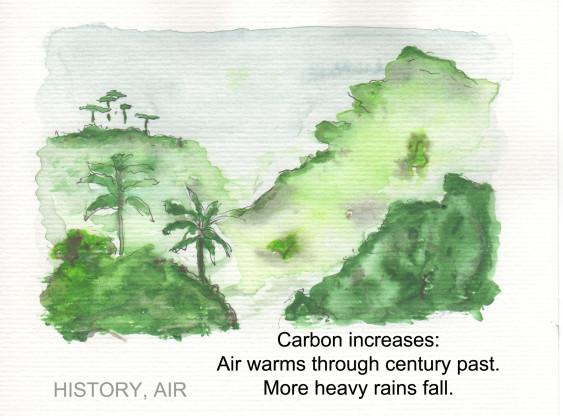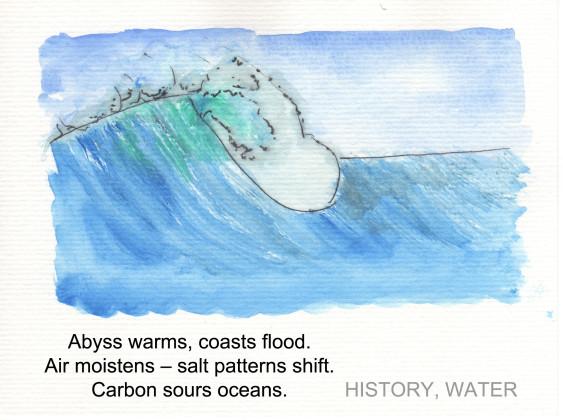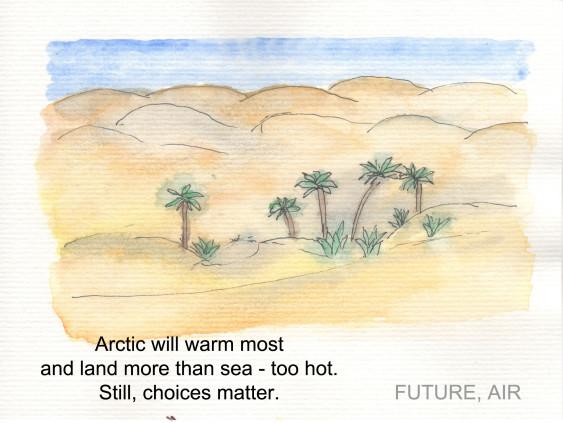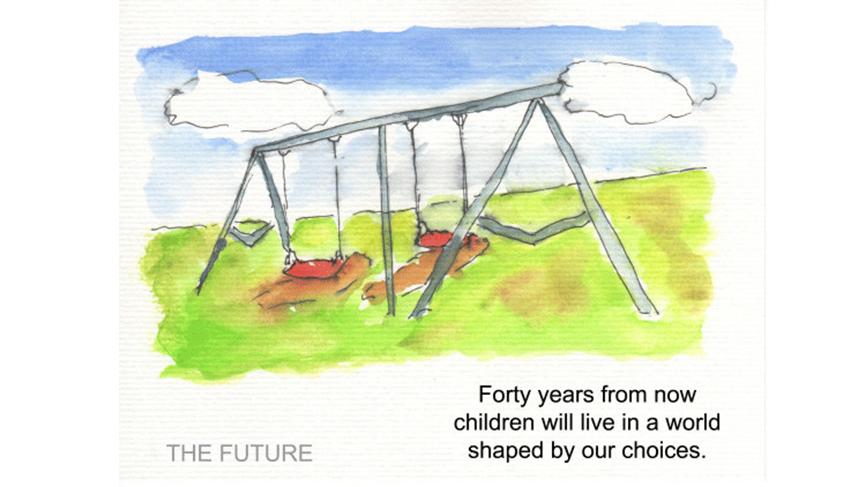This scientist’s ‘art’ depicts an Earth in crisis
Gregory Johnson wanted to put The Intergovernmental Panel on Climate Change in a new light — so he turned it into Haiku, and illustrations.
NOAA scientist Greg Johnson was a lead author for a section of the Intergovernmental Panel on Climate Change Fifth Assessment. But he wasn't satisfied with the scientifically-based written prose he created.
So he has come up with a simple, elegant way to communicate the complex scientific findings — haiku, and illustrations.

Johnson was sick one weekend and unable to leave his house. To pass the time, he decided to reread the summary for policy makers from the first section of the IPCC report. He was having trouble concentrating on the dense, detailed text and thought he could “fix it in [his] mind” if he tried to compose a haiku for each of the subsections of the report.

He accompanied each haiku with a small watercolor painting.

Haiku isn’t a new form of expression for Johnson. He posts almost exclusively in haiku on Facebook.
“I find that it helps me be in the present,” he says. “It tends to link my posts a little more closely to nature and what’s going on around me," he says. "And it also limits the number of posts, which my friends probably like.”

But just because he made them, didn't mean Johnson intended to share them.
“[It] took some time on my part to get up the courage to put this out there,” Johnson adds. “This, of course, is a distillation of [the] work of 209 lead authors, 50 review editors, 1,000 expert reviewers — so a huge amount of work went into [that report]. But the response to the haikus has been remarkably positive.”


A note from Greg Johnson: This work is an attempt to distill into haiku “The Summary for Policymakers of the Working Group 1 Contribution to the Intergovernmental Panel on Climate Change Fifth Assessment Report.” The result is solely my own creation, so any views or opinions expressed herein are my own, and do not necessarily reflect the views of the US Government, the IPCC, or any other entity.
NOAA scientist Greg Johnson was a lead author for a section of the Intergovernmental Panel on Climate Change Fifth Assessment. But he wasn't satisfied with the scientifically-based written prose he created.
So he has come up with a simple, elegant way to communicate the complex scientific findings — haiku, and illustrations.

Johnson was sick one weekend and unable to leave his house. To pass the time, he decided to reread the summary for policy makers from the first section of the IPCC report. He was having trouble concentrating on the dense, detailed text and thought he could “fix it in [his] mind” if he tried to compose a haiku for each of the subsections of the report.

He accompanied each haiku with a small watercolor painting.

Haiku isn’t a new form of expression for Johnson. He posts almost exclusively in haiku on Facebook.
“I find that it helps me be in the present,” he says. “It tends to link my posts a little more closely to nature and what’s going on around me," he says. "And it also limits the number of posts, which my friends probably like.”

But just because he made them, didn't mean Johnson intended to share them.
“[It] took some time on my part to get up the courage to put this out there,” Johnson adds. “This, of course, is a distillation of [the] work of 209 lead authors, 50 review editors, 1,000 expert reviewers — so a huge amount of work went into [that report]. But the response to the haikus has been remarkably positive.”


A note from Greg Johnson: This work is an attempt to distill into haiku “The Summary for Policymakers of the Working Group 1 Contribution to the Intergovernmental Panel on Climate Change Fifth Assessment Report.” The result is solely my own creation, so any views or opinions expressed herein are my own, and do not necessarily reflect the views of the US Government, the IPCC, or any other entity.
Our coverage reaches millions each week, but only a small fraction of listeners contribute to sustain our program. We still need 224 more people to donate $100 or $10/monthly to unlock our $67,000 match. Will you help us get there today?
